By Allyn Vannoy
“Hitler’s generals, raised on the dogma of Clausewitz and Moltke, could not understand that war is won in the factory.” — Joseph Stalin, 1949.
The development of mechanized fighting forces as a key element of modern warfare underwent a major transition during World War 2, as determined by the numbers of motor vehicles and armored fighting vehicles (AFV) built and engaged. Mechanized capabilities were determined based on industry, leadership, and the quality and types of vehicles and AFVs, along with the capabilities of a nation’s people.
While the German army was well organized and efficient, it was not the war machine it could have been. While an innovative and outstanding force early in the war her enemies made improvements, using hard won time to make changes and apply what they had learned, while flaws in the German war machine became more apparent.
A basic weakness of the German war machine could be found in the German population. Although they could produce excellent machines and products, Germany lacked a large populous that was sufficiently technically advanced.
There were also problems in manufacturing. The German automobile industry found itself unable to produce the wheeled vehicles needed to support mechanized forces.
The outbreak of fighting quickly magnified deficiencies. Shortages of trucks were experienced as early as the Polish campaign. After the defeat of France a number of French army vehicles were pressed into service in order to provide for the expansion in the number of panzer and motorized divisions. Despite this, as the German army entered Russia it continued to be dependent on horse-drawn wagons and carts. Only eighteen percent of German divisions were fully mechanized in 1940-41.
Mobility Trumps Firepower
The Germans came to the realization that what made a combat unit more effective was its mobility rather than its firepower. Thus, motorized infantry divisions were as useful as panzer divisions.
The German economy’s inability to produce the quantity of vehicles needed for the entire army was a key reason for creating the panzer divisions, as well to the sudden and rapid expansion of the army. This resulted in the German army being organized into a small, motorized force and a large, non-motorized force.
The Germans built just 50,000 armored fighting vehicles during the war while the US and Russia built thousands more. One of the reasons for the disparity was that the Germans focused on qualitative advantages rather than quantity. They never adopted the manufacturing practices that enabled the Allies to churn out huge numbers of tanks.
German tanks were considered superbly engineered vehicles, but the Mark V Panther tank took 150,000 man-hours to build. The Tiger, with over 26,000 parts, took over 300,000 man-hours. German tank production was also hurt by the large number of variations or models.
In the end, Adolf Hitler did not possess the type of economy necessary for the creation and maintenance of a large mechanized force. Even if the needed number of tanks and vehicles could have been produced, synthetic oil production and Rumanian imports were insufficient to support Germany’s armored force. The inability of the German economy to keep the army even moderately equipped forced the use of foreign equipment as well as a heavy reliance on horses for transport. This dependence increased as reverses on the battlefield and in the air war created shortages of both vehicles and fuel.
The Germans built excellent AFVs, but failed to address the larger picture of fielding sufficient mechanized forces.
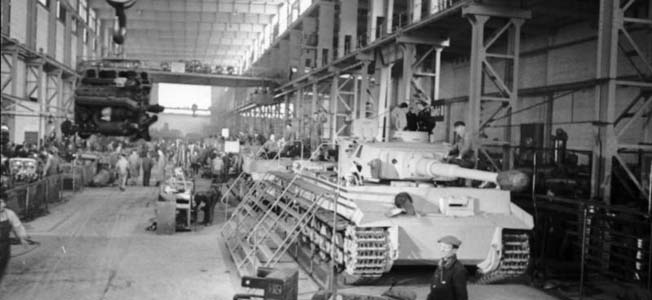
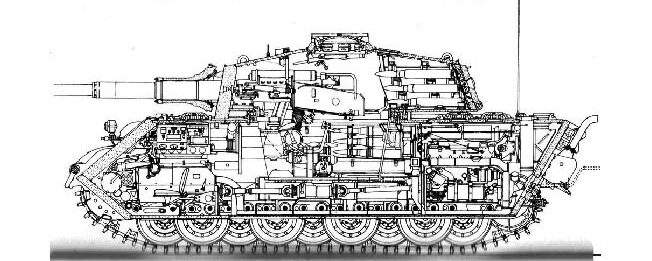
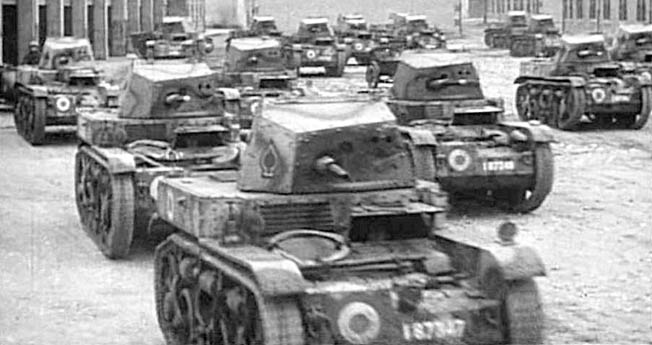

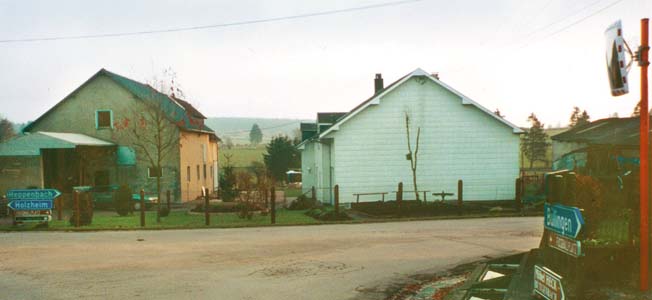
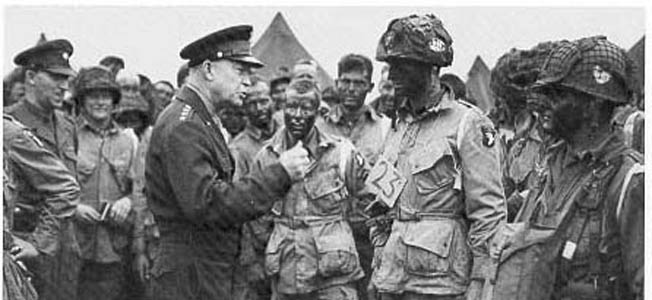
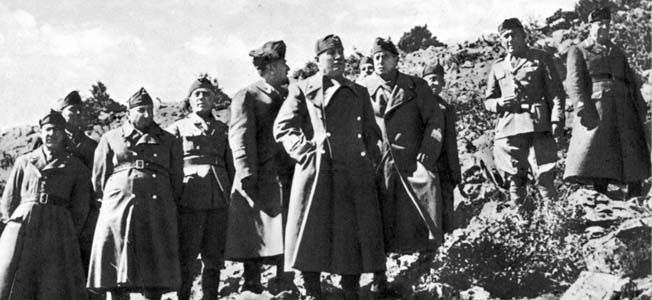
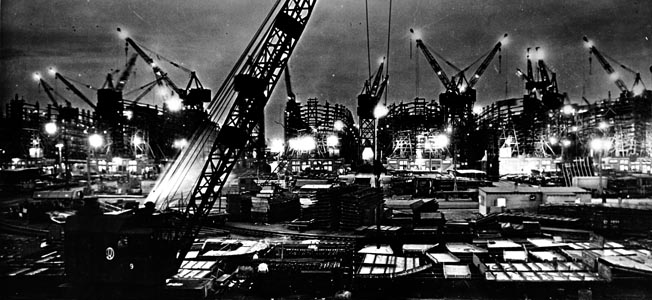
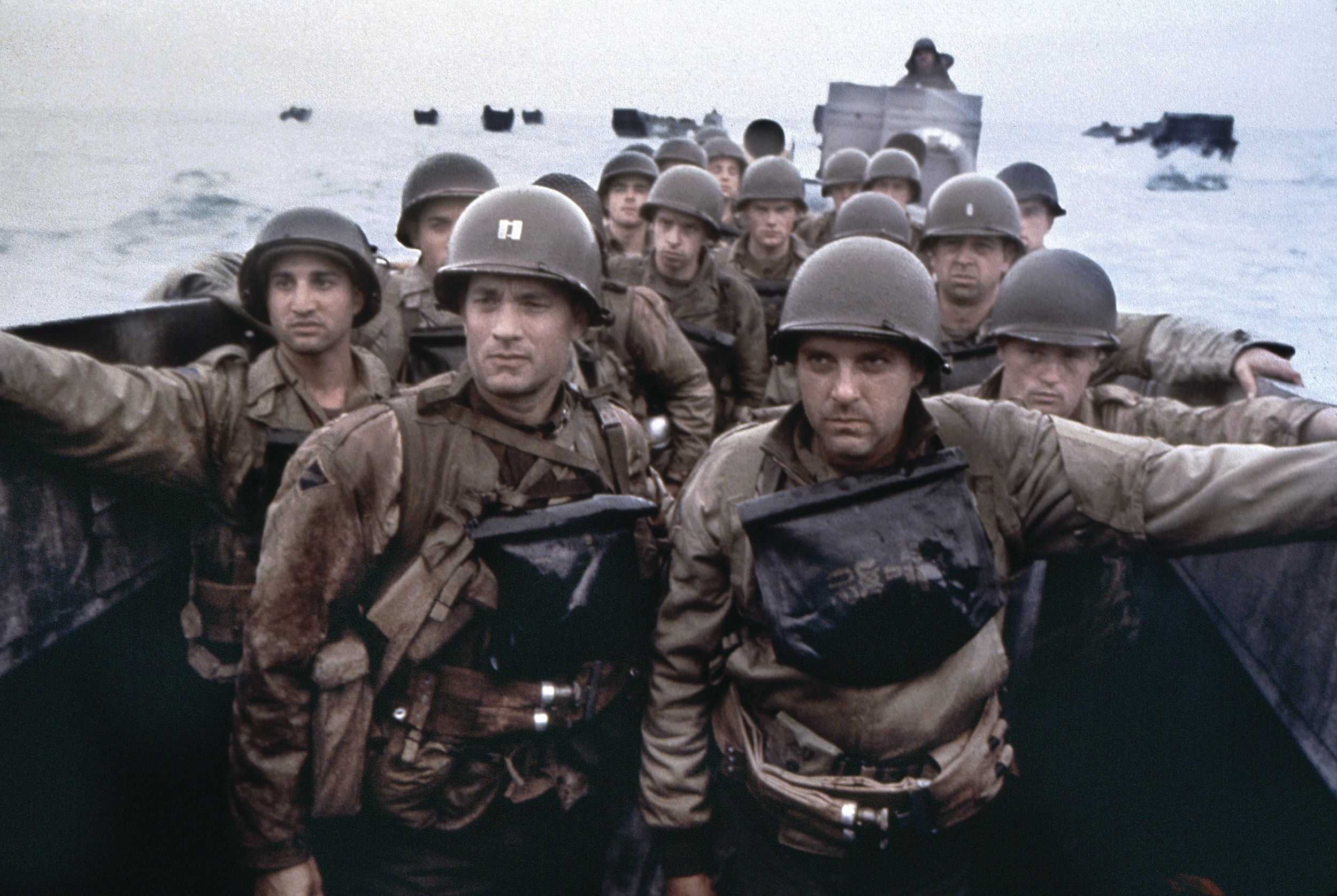
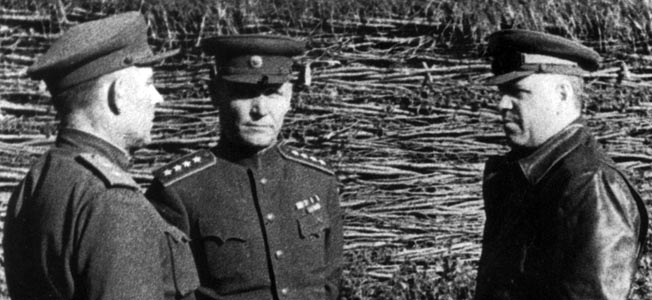
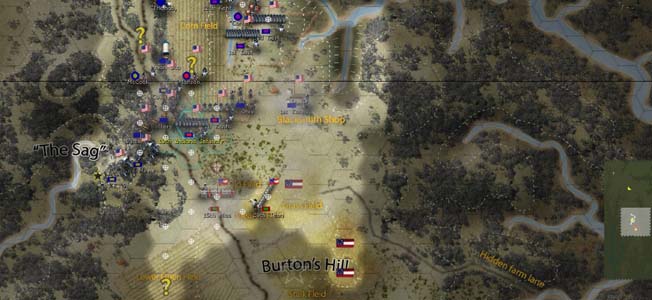
Thanks for your always excellent articles.
Regards
After Speer took over as armaments minister, Germany produced much more per capita than any other nation in the world. A country the size of Texas could not compete with Russia or the US in war production. Hitler stated that had he known how many tanks Stalin possessed in 1941, he would never have attacked Russia. Considering that Germany was launching intercontinental ballistic missiles against England in 1944, and attacking our air forces with jet fighters that far exceeded the speed of the P-51, we were saved only by the fact that Goering and Hitler did not appreciate the work (and did not provide funding for Von Braun) or importance of this work until late in the war. I won’t even mention the mistakes that led to the discontinuance of research and development of atomic fission and the bomb! Fortunately for us all that these projects were not appreciated by Hitler early on in 1933….one could on and on about these and other mistakes made by the Nazi regime which caused Germany to lose the war—-but it was certainly not because of a lack of industry by the German people.
I am constantly amused by people thinking the jet planes were a big deal during WW2, or for that matter the V 2 rockets. The jet fighters and bombers could not go very far and used a great deal of fuel. Their weakness was that American fighters simply followed them until they had to land due to lack of fuel and shoot them down as they were landing. At the end of the war the Germans had lots of jet fighters sitting around with no fuel. The V2 was a terror weapon. The V2 had very little accuracy so was not a tactical weapon. ( Just like the Scuds in Iraq.) The tanks could outshoot the US tanks but as the War progressed the Air superiority made large German Tanks able to only defend or move at night. Much is made of the German tanks’ vs Sherman Tanks. Whenever the Sherman tanks were in the defense they did quite well. Most of the time the Germans were in the defense, so they had the element of surprise. The biggest reason the Allies won the war was because of their ability to produce more equipment and supplies and more manpower to fill in any shortages occurred. Once Air superiority was achieved The US could move and so could the Soviet Union during daylight without worry. Germany was also at a disadvantage in the fact that England was able to read the German Secret radio traffic and knew what the Germans were doing. German early victories at the beginning of the war was a result of the other countries not being ready to fight a modern war.
Germany could never compete because of the lack of resources, particularly high quality iron ore. Therefore, the longer the war lasted, the further behind the Germans fell due to this lack of resources. The quality of the AFV’s manufactured did not matter by 1944.
It was volume. The Russians mastered building the most serviceable tank, the T34. Smaller countries used this tank or one of similar design through the 1960’s.
The bedrock reason why Germany, and other nations, were slaughtered wholesale, in WWII, is that the German people permitted themselves to be led by a monster, Adolf Hitler. He was voted into power and on the first day in office, he confiscated all private weapons and nationalized the media. He thought he could conquer most of the entire world, with no hope of success.
We will either learn from history, or repeat our errors, except with weapons thousands of times more lethal. We now have the technical capability to destroy every human being on this planet. Only our laws and morality hold us back.
Hitler was never “voted into power”. He was determined by the then President of Germany, Paul von Hindenburg, the leader of the German armed forces in WW1. In free elections his NSDAP party never got even close to 50 %, especially because the catholic Germans (roughly one third of the german population) did not vote for him.
The real failing was Hitler’s declaring war on the U.S.
If he had not done this we would not have declared war on Germany and turned our entire attention to defeating Japan (regardless of what FDR wanted.)
As such perhaps a million troops from the WEST could have turned on Russia and Russia would have been crushed. Britain was in no shape to do launch any campaigns against Germany as the U.S. would not have been a major supporter. The minute Hitler declared war against the U.S. he was fighting a two front war. Hitler’s megalomania and gambler instincts were his destruction caught up with him on this disastrous decision.
True, although you have to give Hitler a little slack. When he declared war officially against the US, he was only recognizing the de facto existence of the already existing war declared by the US against Germany.
How so? You may ask. Consider 2 simple facts. 1-The US was not only selling all kinds of war materials to Germany’s foes but in the case of England simply giving them away. IN DIRECT CONTRAVENTION OF ARMERICAN NEUTRALITY LAWS. 2-An American military officer aboard a PBY, on duty, in uniform radioed the exact location of the Bismark after they had eluded the entire British fleet and were proceeding to port in France where they could have resupplied and stretched the British defense net dangerously thin. Their surface fleet would have no longer been able to simply wait in Scapa Flow covering the relatively small area between NE Germany and Norway. Instead of being able to concentrate all their surface fleet in that one confined space, they would have had to defend two widely separated points.
I would have to say that if sinking a nations biggest battleship is not a declaration of war not much is.
That long radio message by Admiral Lutjens, also helped the British find the Bismarck. The British were able to triangulate Admiral Lutjens radio signal. The motto of the American Navy was “Loose lips, sink ships”
German AFVs were actually significantly oversold in post-war literature. Panzer IIIs and below (the bulk of the German armored force prior to late 1943(!)) were markedly under armed, armored and had greater restrictions on off road mobility then the bulk of their allied counterparts.
The Tiger and especially the Panther suffered from enormous reliability problems through the end of the war (to the extent that they were losing more then 30% of their number to breakdowns… an even bigger problem once they started losing ground and their field repair facilities). Additionally, they were not suited in design philosophy to German doctrine, emphasizing firepower and protection over mobility. And their weight and the curious German failure to develop and field a suitable diesel engine meant that they simply exacerbated Germanys oil problems at a time when the Axis oil infrastructure was increasingly impaired.
Finally, the curious German failure to develop specific aspects of the combined arms team to support their armor, such as engineers to clear obstacles and minefields or a proper recovery vehicle for their new heavy tanks, meant that these platforms were hobbled even when playing to their strengths.
Bottom line, Germany lost the industrial war, yes, but they also developed platforms with key deficiencies that didnt meet the needs of their armored force by focusing on heavy tanks when what they really needed was a solid medium tank.
Ultimately, it came down to the simple fact that the Nazis could not build the atomic bomb. Even if the German army exceeded the Allies’ mechanized forces and were able to drive them back on both Eastern and Western fronts, the U.S. would have eventually bombed Germany into oblivion.
I read a very similar article a few years ago. They cited almost every factor that has been emphasized here, and I agree they were all important. I was astonished at the simple volume of man hours needed to build a single tank plus the enormous added difficulty the plethora of variations added.
I was aware of the enormous lack of transport vehicles and the continued dependence on animal drawn vehicles.
There were a couple of things I thought were important this other article brought out. We’ve heard of Rosie the Riveter and we know of the huge numbers of English females who took over factory jobs so their menfolk could go fight. Just think of the effect an additional 1-2 million fighting men could have made at crucial battles.
Secondly the other article put a lot of emphasis on Hitler/Nazi philosophy on actively preventing adoption of American mass production techniques. This article mentions the German lack of qualified manufacturing workers to make their weapons. If you adopt mass production, you don’t need highly skilled artisans, just a warm body and a heartbeat to plug into a production line.
The allies were also aided by Hitler’s lack of strategic knowledge. As a foot soldier in WW I, he simply had no concept of preparing for a strategic operation. His General Staff had told him in 1938 that Germany could not be prepared for a general war at least until 1945. Hitler disregarded this in his belief that swift attacks would have such a devastating effect on the enemy that they would simply collapse. He forgot the resilience of British in WW I and the geography of Russia that defeated Napoleon and later halted the Kaiser even though they appeared defeated.
Another strategic mistake made by Hitler, was his war on the Jewish and Slavic People. The manpower and resources he wasted hunting them down and eliminating them were badly needed in the field. I would like to know how this affected his ability to focus on the prosecution of the War. So much time and effort were squandered on something, I believe, had no strategic importance and distracted from action in the field.